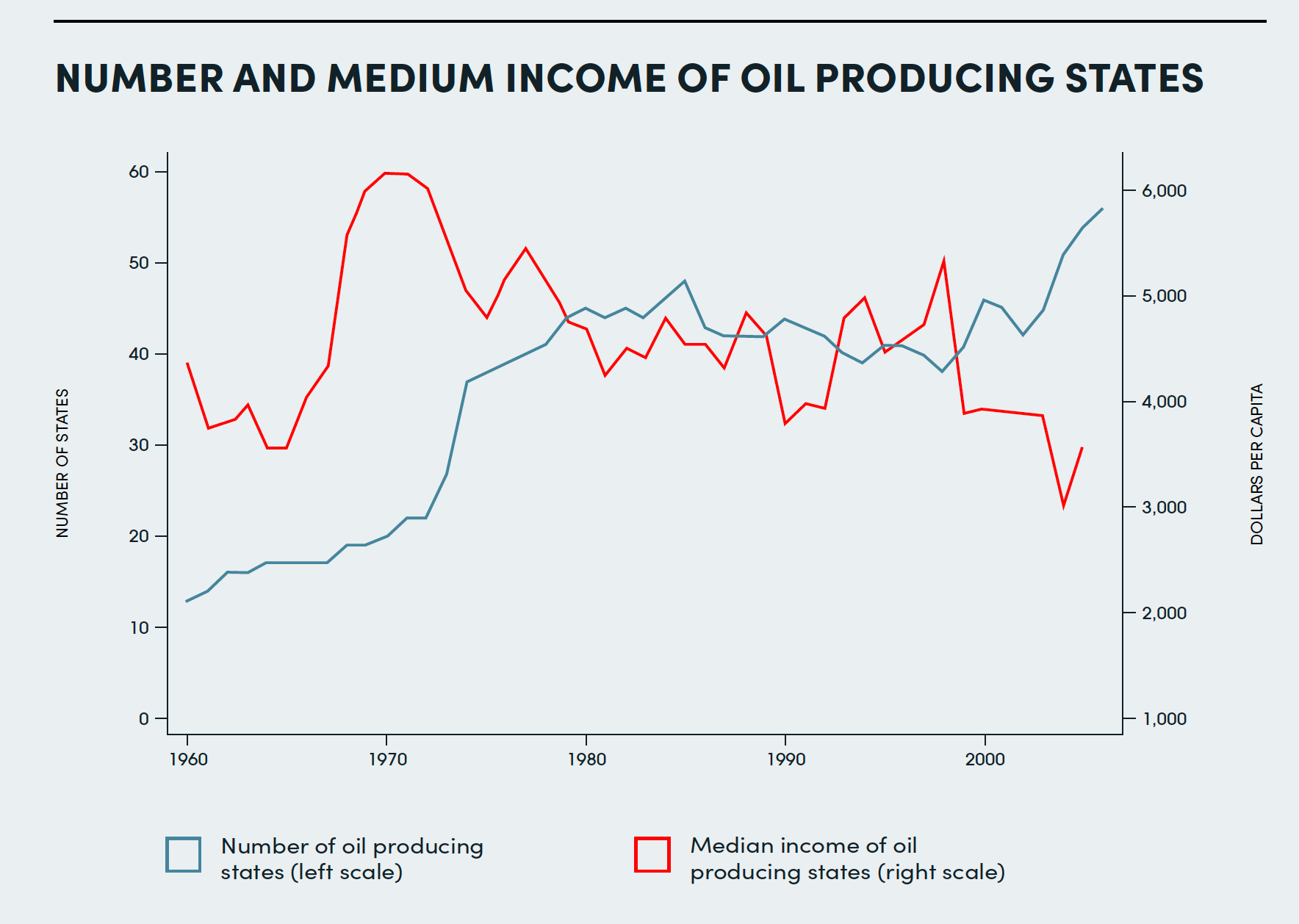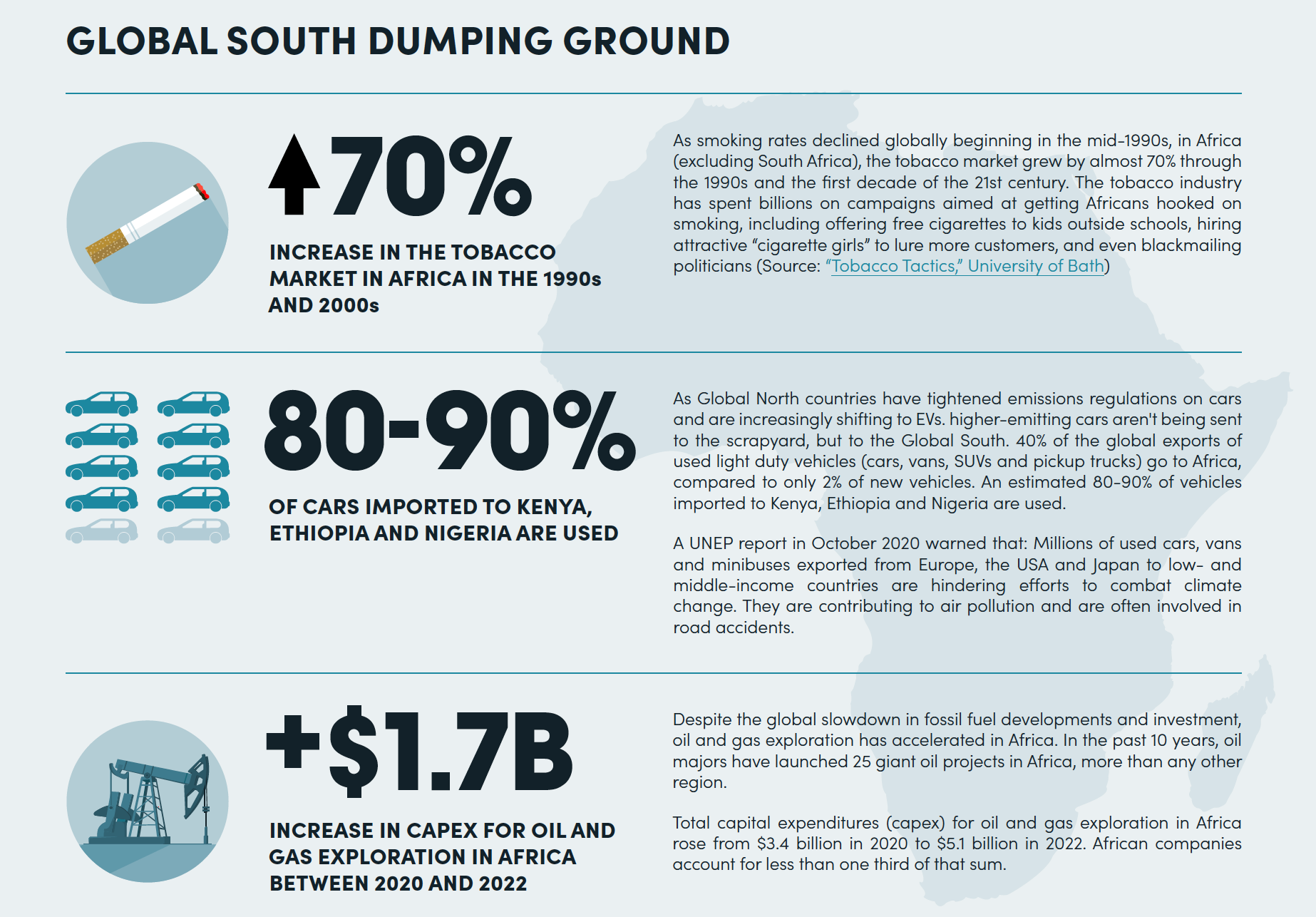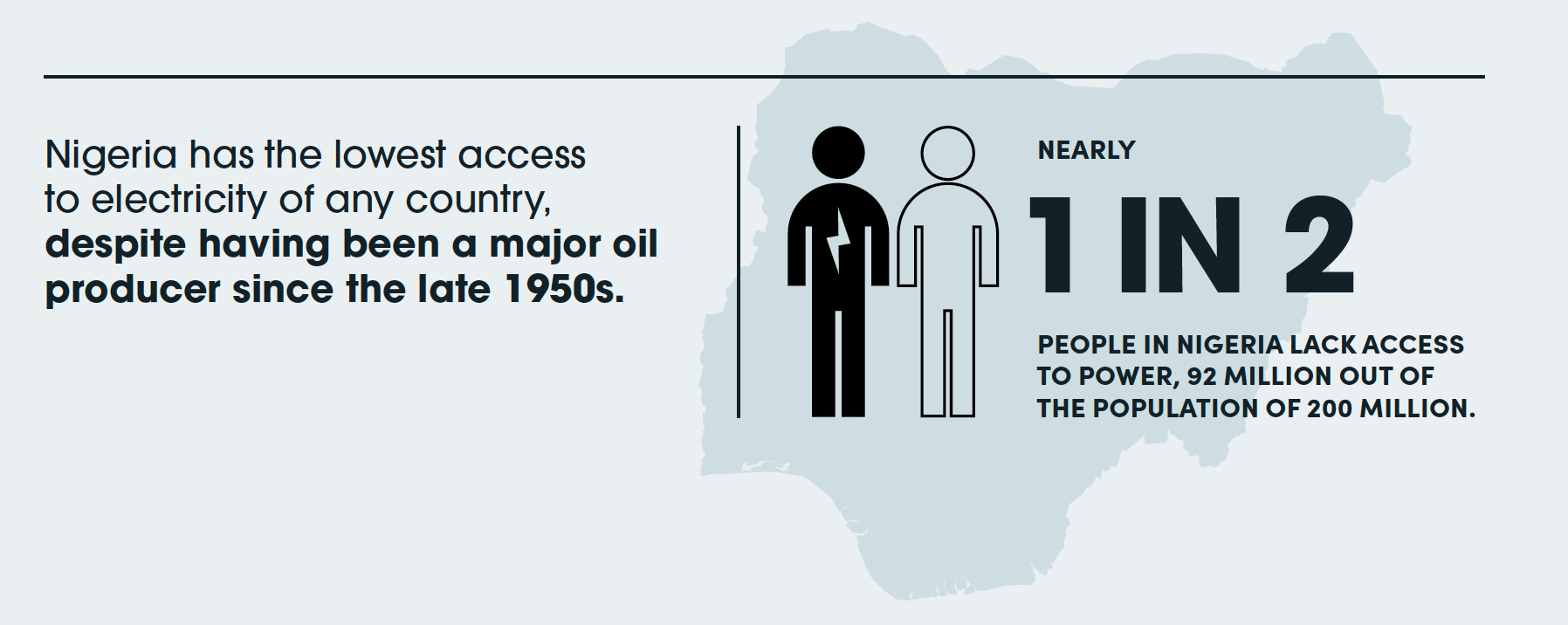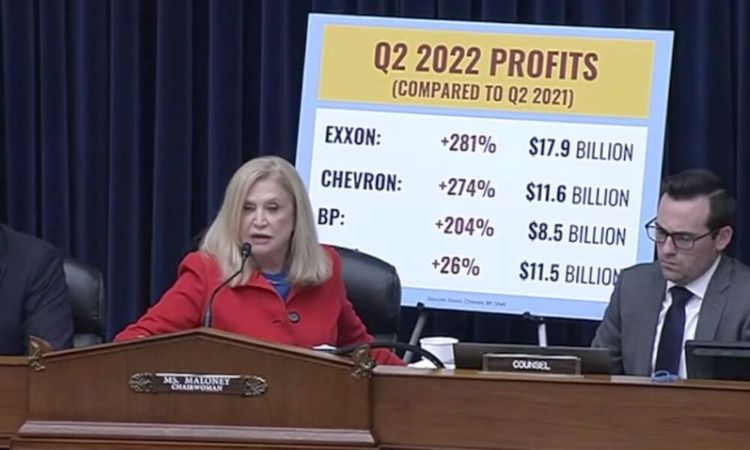Happy Earth Day: Let's Move Past the "Moral Case" for Fossil Fuels

When global leaders first began meeting to discuss an international effort on climate change, fossil fuel companies and right wing pundits complained that any deal that didn’t require everyone to transition at the same pace was unfair. Groups like the Global Climate Coalition, which brought together all the industries that objected to emissions regulations, would hold up maps and point to all the countries that weren’t required by the Kyoto Protocol to commit to emissions reductions and say: “It’s not global and it won’t work.”
Now, 30 years later, the same people (literally, in some cases) are arguing the opposite, insisting that the world must give Global South countries time to develop their own fossil fuel industries and pursue the same carbon-intensive development path the Global North did.
Sometimes that message is echoed by climate nonprofits too, under the umbrella of just transition. But is it really just to force people down a path you know is filled with rocks and holes?
The reality is that addressing poverty and the climate crisis don’t have to be mutually exclusive, and the climate movement in particular needs to stop believing that they are. Doing so requires combating this narrative with nuance, data, and better solutions. We have been doing that throughout the latest season of the Drilled podcast, and now we've compiled it all into an easily shared discussion guide. This Earth Day, spread the word!
Hey, speaking of the podcast, are you a listener? Only about 20% of our newsletter subscribers listen to the podcast. And I get it, some people are listeners, some people are readers. But if you think you might want to hear what some of the folks I quote in the newsletter sound like, or get a really immersive sense of what's happening in Guyana as a new fossil fuel industry emerges there, check it out!
The long-held belief that increased energy use results in increased life expectancy
has been proven to be exactly that—a belief—by decades’ worth of
peer-reviewed economics research. As early as 1974 (!), economic researchers
writing in the journal Science concluded that American quality of life would
be just as high if we used a fraction of the energy we were using. In 2010,
researchers showed that the amount of energy required to reach high life
expectancy is going down, not up, over time. More recently, in 2020, economists
found that while increased energy use is correlated to increased GDP, it
accounts for at most 20% of improvements in life expectancy.
“We can conclusively put in a coffin, bang the lid shut with big old nails saying fossil fuel use does not contribute significantly to improvements in life expectancy. This idea of the grubby titan who's sort of holding up the industrial basis for the rest of us right? That is disproven by this study. We do not rely on fossil fuels for improvements in our living standards.” – Dr. Julia Steinberger, University of Lausanne, lead author IPCC AR6

MYTH #2
Addressing Energy Poverty and the Climate Crisis Are Mutually Exclusive
An entire chapter of the most recent report from the Intergovernmental Panel on Climate Change covered this, drawing on more than a decade of economics and social science research to come to the conclusion that emissions and energy use can be reduced without sacrificing quality of life.
"Without reducing employment, without reducing human wellbeing, actually 40 to 70% of 2050 level of projected emissions can be reduced by working on the demand side." — Dr. Joyashree Roy, economist, lead author Ch. 5, IPCC ARG Mitigation report
In fact, Indian economist (and lead author of that IPCC chapter) Joyashree Roy notes that GDP growth has continued in all the countries, whether developed or developing countries, despite continuously declining growth in energy, so increased energy use isn’t even required for increased economic growth.
An important fact that the fossil fuel industry doesn’t want you to know is that actually if the world’s wealthiest 10% (that includes the vast majority of Americans) curbed energy consumption even a little bit, through basic behavior changes, it would have an enormous impact on emissions globally. And…we’ve done it before. During the 1970s when oil-producing countries in the Middle East embargoed oil going to the U.S., Americans got very good at energy efficiency. So good that the industry really worried about how they would get consumption back up again. The reality is, nobody needs to be consuming Global North levels of energy to have a good quality of life, and balancing demand is not as hard as the fossil fuel industry would like you to believe. This idea–that addressing poverty and climate change are not mutually exclusive–underpins the Decent Living Energy index as well, which models development pathways that both reduce emissions and improve quality of life.

MYTH #3
Fossil fuels are cheap and plentiful. Alternative energy sources are expensive and scarce.
Fossil fuels are in fact enormously expensive to find, extract, refine and ship. Just listen to the fossil fuel industry they’ll tell you so when they’re justifying record profits, only to turn around and claim fossil fuels are cheap when they are arguing for expanding the development of them. The reality is that fossil fuels are only cheap where they are subsidized and when citizens absorb the costs they impose on society by way of air pollution and water pollution. Meanwhile, there are various alternatives that are either more plentiful (nuclear, hydro) or cheaper (wind and solar, as of 2021).
As of 2021, renewables were cheaper than coal in the vast majority of cases. According to the International Renewable Energy Agency (IRENA) almost two-thirds of newly installed renewable power had lower costs than the world’s cheapest coal-fired option in the G20. Storage and distribution of renewables does really need to come down in cost, but that will only happen if investments are made into both innovating and sharing that technology.
And it’s important to point out: no one needs to be consuming as much energy per capita as Global Northerners do in order to have a decent quality of life. Even if the whole world were to switch to non-fossil-fuel energy forms, maintaining an unnecessarily high level of consumption would have us bumping up against another planetary or environmental boundary in no time.
MYTH #4
If climate people were serious they would support nuclear and hydro.
This is a tricky one because there are plenty of climate folks who don’t support nuclear and hydropower because, as with fossil fuels, they feel the risks outweigh the benefits. Similarly, there are plenty of climate folks who are worried that the mining required to fuel a renewable energy boom will be the next big environmental problem. However there are an equal number of climate folks who do support all non-fossil-fuel energy options and according to a recent Pew study, that number is increasing as people are beginning to feel a greater sense of urgency around the climate crisis. In other words…they’re already doing what the various pundits and politicians who use this line want them to do–taking the crisis seriously enough to embrace even imperfect and potentially dangerous options.
MYTH #5
The Global South desperately wants fossil fuels.
Okay so first off, the Global South is not a monolith! For crying out loud neither is any one country within the Global South. So yes, debate-me bros like Michael Shellenberger and Alex Epstein and Jordan Peterson can all find someone to tell them fossil fuels would make their lives better, just like climate NGOs can find people who want to shut down coal and gas across Africa. As in Global North countries there are people who are both for and against fossil fuels throughout the Global South, but the largest segment of the population simply wants basic needs met – light, housing, running water, a clean and safe way to cook food, a better life for their children. Those needs sometimes require energy and sometimes don’t; but as we covered in myth #2, energy needs don’t have to be met by fossil fuels.
It’s also more of the same old colonialist mindset for Global North organizations and leaders to tell the Global South what they should be doing, period. Melinda Janki, the Guyanese lawyer we talked to for our latest podcast season had this to say about the idea that the Global South wants and needs more fossil fuel development:
"Why would you say that? When in every single former colony, people are saying, Stop the oil. We don't want it in places like Uganda and Mozambique, and, you know, they're putting their lives on the line to stop oil and you sit in your comfortable university room and say, 'Oh, well I've decided that, um, in the interests of justice, these people shouldn't have to get rid of fossil fuels until 2050. And in order to make this really fair, the first world should now immediately convert to renewable energy.' In other words, all the white people, go straight for renewable energy. Realign their economies and move on to prosperous carbons free future. Dump the stuff on the third world. But I'm doing this under the guise of a just transition." —Melinda Janki, attorney fighting fossil fuels in Guyana
Examples of Global South countries that wind up worse off after an oil boom abound:
- Ghana - struck oil in 2007 and 2010. After an initial period of growth driven by expectations of wealth, growth dropped below 4 percent between 2014 and 2016, despite IMF forecasts for above 7 percent. (Source: International Monetary Fund)
- Venezuela - in 1950, shortly after it found oil, Venezuela skyrocketed to the 4th richest economy in the world. By the mid-1980s, an oil glut and free-falling oil prices decimated the Venezuelan economy, which was entirely dependent on oil. The country’s economy has never recovered. (Source: World Economic Forum)
- Trinidad - after a major oil boom in the 1970s, Trinidad’s economy crashed in the mid-1980s when oil prices fell, because the country’s economy had quickly become so dependent on oil. The country had another boom when oil prices rose, from 1999-2008 but crashed once again when fracked gas from the U.S. crashed global prices. (Source: University of the West Indies)
- Development economists often point to a comparison between Nigeria and South Korea as a clear example of the “resource curse.” In 1950, both countries were poverty-stricken. Subsequently, Nigeria had an oil boom while South Korea developed various non-resource-dependent industries. By 2020, Nigeria had a GDP per capita of $4,900, while in South Korea, the GDP per capita was $42,300. In Nigeria, 16.5% of adults were unemployed as of 2017. In South Korea, that number was 3.8%.(Source: Central Bank of Nigeria)
MYTH #6
The Global South Could Get Rich Off Fossil Fuels If the Climate Movement Would Just Back Off
Historically, the only people who get rich off of oil discoveries are oil companies and the handful of government officials who grease the system for them. Examples abound all over the world, but if anyone were going to make it big off oil money by this point it would have to be the state of Louisiana, a hub of the industry for more than a century. And yet…Louisiana has some of the highest poverty rates and highest electricity bills in the country. I thought the whole benefit was cheap energy!
According to Harvard economist Jeffrey Frankel, “the data suggest no positive correlation between natural resource wealth and economic growth.” No. Positive. Correlation. This is thanks to something economists call the “resource curse”--the tendency of economies that are overly tied to a particular commodity to focus everything on that commodity, make a small handful of elites rich and eventually tank the economy. Countries with large petroleum reserves suffer a particular strain of the resource curse: the oil curse. They tend to have less democracy, less economic stability, and more frequent civil wars than countries without oil.
Since 1980 as most of the Global South became wealthier, more democratic, and more peaceful, Global South oil producers went the opposite direction. These oil states are no wealthier or more peaceful than they were decades ago and in several cases they’re actually worse off today than before oil was discovered. From 1980 to 2006, per capita income fell in Venezuela (6 percent), Gabon (45 percent), and Iraq (85 percent), for example. In researching his book, The Oil Curse, UCLA political science professor Michael L. Ross concluded: “Petroleum produces the largest problems for the greatest number of countries. The resource curse is overwhelmingly an oil curse.”
Ross also finds that this curse affects Global South countries far more than Global North countries. He says it’s no accident that so much of the world’s oil happens to be in so many of its least democratic and most poverty-stricken regions. Rather, it’s the oil that brought poverty and authoritarianism to those states. And as the industry has expanded into more and more Global South countries, the amount of money those countries earn has gone down not up.

“The low-income countries that most desperately need money are also the most likely to be struck by the resource curse,” Ross writes. “Unless something is done, these windfalls will hurt, not help, people who live on the petroleum frontier.”

MYTH #7
Calls to End Fossil Fuels Will Block Development Progress in the Global South
We’ve already laid out the various ways that fossil fuel development and use has been decoupled from overall development and quality of life. But there’s also a way in which fossil fuel development could actually be the thing that limits progress in the Global South. In the same way that tobacco companies turned to the Global South as their customers once the Global North cracked down on smoking, and car companies are dumping combustion engine vehicles on the Global South as the Global North transitions to EVs, and petrochemical manufacturers (also known as…oil companies!) are dumping plastic on the Global South as Global North consumers turn away from disposable plastics, the fossil fuel industry is turning to the Global South as its last customer. The industry is pushing for long-term infrastructure there that will lock in coal, oil, and gas use for decades to come, not only ensuring that Global South citizens will continue to pay too much for energy, but also that they will be late to the energy transition, left stuck with the most stranded oil and gas assets while the rest of the world moves on.
Africa, for example, has greater renewable energy capacity than any other continent, but because of the oil boom there in recent decades, the U.N. identified stranded fossil fuel assets as “a very real threat” to Africa’s development. Meanwhile, despite producing nearly 10% of the world’s oil and gas, more than 600 million people still lack access to electricity across the continent. If fossil fuels were the fix for energy poverty…why would we still have so much energy poverty in the world?

The Moral Case for Reducing Consumption
Earth Day is the perfect time to talk about this, the biggest bugaboo in both anti- and pro-climate circles, the idea that to balance wealth and energy access and lift the quality of life of those in the Global South, we in the Global North need to stop consuming quite as much. Do we have to grind our economies to a halt, stop eating meat entirely, return to an agrarian lifestyle, get rid of cars? NO, despite the fact that these are the sorts of arguments you will hear from the folks who make the moral case for fossil fuels, because what they are actually making the case for is limitless capitalism, limitless growth on a planet with finite resources.
So…how do we solve global poverty and stave off the worst impacts of the climate crisis at the same time? A rebalancing of consumption patterns, with the Global North reducing consumption to make room for the Global South to attain a better quality of life, according to Dr. Narasimha Rao and his research at the Decent Living Energy Project. All signs point to relatively painless Global North reductions in emissions and energy use providing the space in the global carbon budget needed for the Global South to develop. In the most recent mitigation report from the Intergovernmental Panel on Climate Change (IPCC), authors pulled from the last decade of peer-reviewed research on consumption behaviors and energy demand and concluded that reducing the demand for energy across the board, via things like improved public transportation, smart city planning, improving the walkability of rural and urban areas, and reducing (not eliminating!) meat consumption would reduce 40-70 percent of emissions across all sectors. No new technology required. No giant vacuum sucking up CO2 from the sky. No Draconian measures that make everybody miserable. We’re talking about things with massive co-benefits for health, the economy, and quality of life.
And even if we do in fact manage to “electrify everything,” demand still needs to be reduced in order to minimize the environmental impact of everything from mining to the buildout of large-scale renewables, as a recent report from the Climate and Community Project makes crystal clear. In it, researchers found that making transportation less car-focused in general could reduce lithium demand by up to 92 percent in 2050. Even if all we did was reduce the size of EV batteries—so, instead of every car owner getting an electric SUV they got just normal cars—lithium supply could be cut by 42 percent. Meanwhile, becoming more energy efficient, which is one of the lowest-cost ways to reduce emissions at just $24 per saved megawatt hour and reduces individuals’ electricity bills at the same time, could avoid the need for at least some of the large-scale renewable plants required to decarbonize the grid. That’s important because the land-use requirements to satisfy just America’s currently enormous energy appetite is huge and brings with it a whole host of potential environmental issues.
Anyone who is truly concerned about alleviating poverty and making the world a more equitable place should be talking about right-sizing demand in more developed countries. If they’re only talking about increasing consumption in less developed countries, it’s probably because they’re actually just interested in selling fossil fuels, not in addressing poverty.





